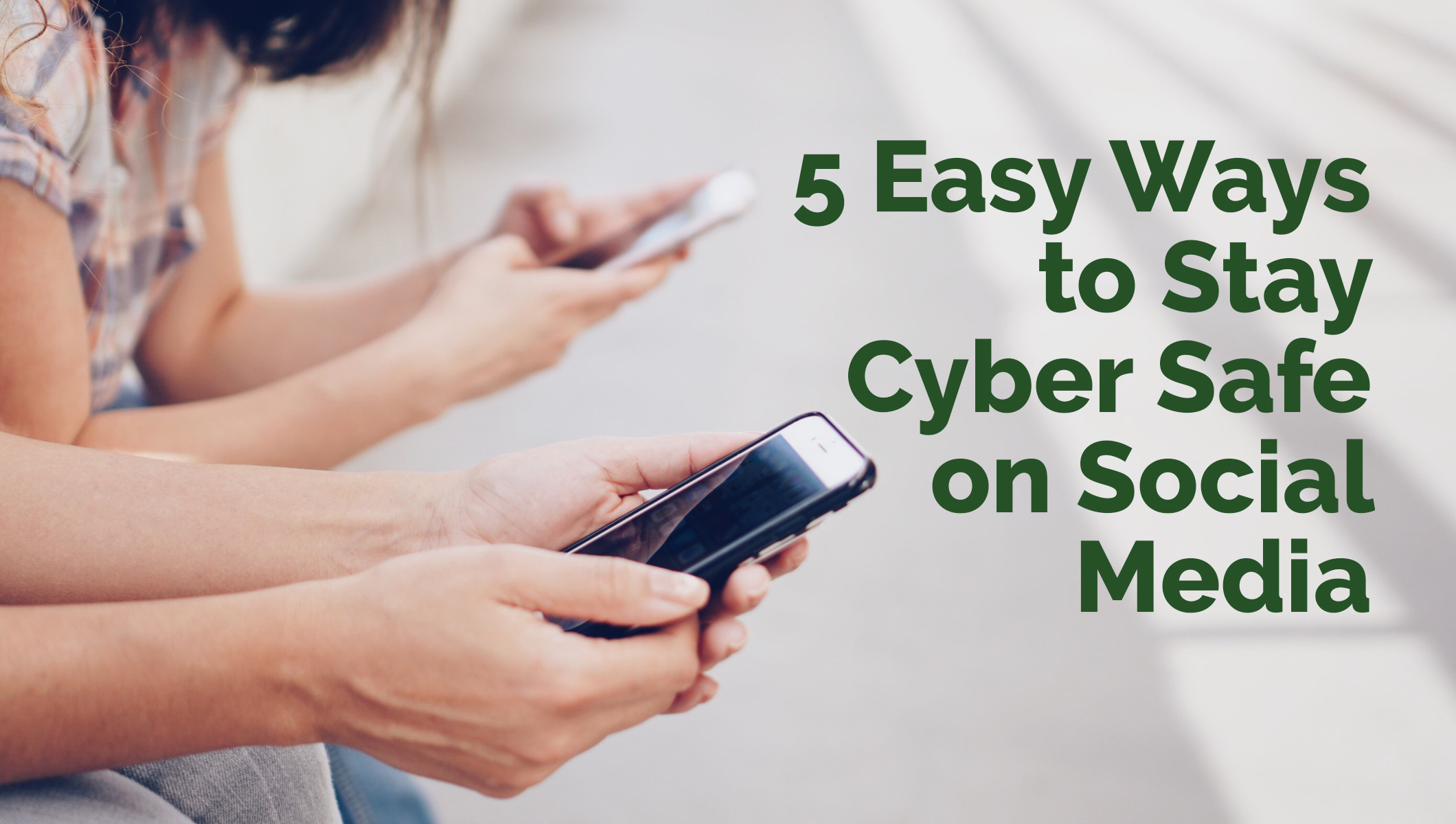5 Ways to Stay Safe on Social Media
With the steady increase of social media users, also comes a steady increase of cyber criminals that seek to:
- Obtain personal and credit card Information
- Gather information to plan a physical attack
- Implant malware on computers
So, what can you do to protect yourself? There are many good practices out there that can help you avoid being targeted by cyber criminals, but there are rules that relate specifically to social media. Check out the five rules we recommend following to stay safe on social media.
1. Protect your login
It's easy to fall into the habit of using the same password for everything. It probably involves birthdays, names, and other easy-to-find information. You probably use these forms of passwords because they're easy for you to remember but guess what – they're also easy for a cyber criminal to figure out. To protect your account from being easily hacked, it's best to use a different password for every site and make sure your passwords consist of letters, capitalizations, numbers, and symbols. Extra points if you can combine all four! You can even use our free password generator to create complex passwords.
The second part of protecting your accounts is using Multi-Factor Authentication (MFA). To take full advantage of this system, install it on a safe device like a cell phone. This way, whenever you log into an account, you must input your unique password plus the additional random code that is delivered to your phone with every login attempt.
Using these two safety precautions greatly lowers the risk of having your account hacked and your information compromised.
2. Limit what you post on social media
We know you want to make your friends jealous and let them know every time you take off for vacation, go to the park, eat at a cool restaurant or any other event going on in your life – but think twice before being so public with your whereabouts next time. Your friends and followers list is likely extensive, and you never know exactly WHO is seeing your posts. While you're showing off your tan at the beach on social media, someone is now aware that your house is unattended, and your home could be next on the list for a robbery.
This isn't to say that you should never post on social media, but just be aware that criminals could be watching your activities online and planning their next crime. Don't make it an easy task for them. Maybe post those photos after you return from your vacation or outing.
3. Be picky about who you accept on social media
From the get-go you should be selective about the people you add on your social media. You probably shouldn't add that stranger that requested to follow you or be your friend. "Come on, it's just Facebook. It's harmless, right?" Wrong. If you don't know the person enough to want to see what's going on in their lives, maybe forgo accepting their friend request or adding them in the first place. You never know what their intentions may be and it's always better to be safe than sorry.
With that being said, you also have to be aware of receiving scam friend requests from people you DO know. You might often get a friend request from someone you thought you were already friends with. You might think "I guess they had to shut down their old account and make a new one." They likely even have the same profile picture as the previous account. However, it isn't your dear friend or beloved family member – it's a scammer! Go ahead and do yourself a favor and delete the friend request. If you feel like it's a legitimate account, then call the person and ask if they made a new account. Likely they will say they didn't, and you will have successfully avoided a scammer. Congratulations! You can even take this a step further and report the scam accounts within a few clicks. This way the social platform can delete the account an protect others.
4. Check social media privacy settings
Social media often automatically sets your privacy settings for you and they may not choose the most private option for you. It is important to check on your privacy settings occasionally and make sure that your account isn't open for the public to see everything that is going on in your life. Don't assume that Facebook or Instagram has your best interest in mind because guess what – they don't! So, be responsible for your own privacy and security by checking up on those settings in case the social platform updates and defaults your privacy settings.
5. Watch/delete unused accounts
As social media trends come and go (except for Facebook, they seem to be everlasting), it is important to keep track of what accounts you have created and be intentional about closing down accounts that you no longer use. If an unused account sits for too long, cyber criminals will take advantage of it and use it to scam others. If you don't want to completely delete the account, be mindful of checking the account occasionally to make sure that it hasn't been hacked.
As cyber criminals get smarter, it is important to stay current on their tactics and how you can prevent becoming victimized. If you need help developing a strategy to keep safe from the perils of social media, contact us. Stay safe, folks!







